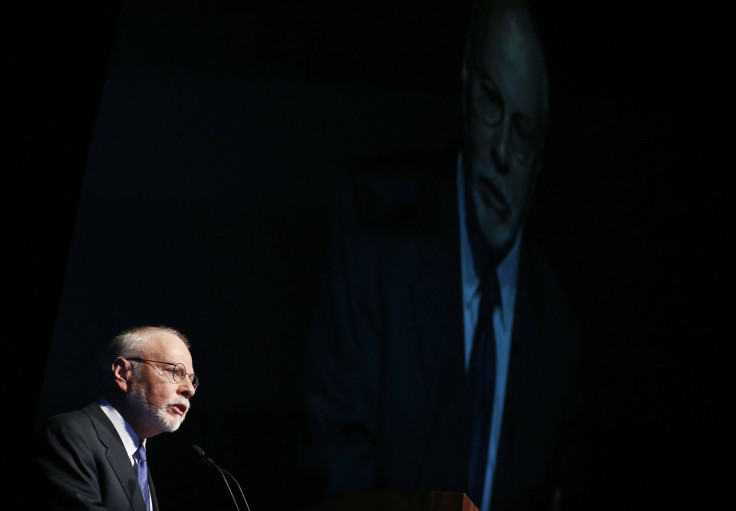Election 2016: Wall Street's Political Contributions Risk Running Afoul Of Federal Laws

Every campaign season, hedge funds and private equity firms spend vast sums to influence political contests. If 2016 keeps pace with previous electoral cycles, the two finance sectors will pump more than $200 million into state and federal elections.
“We’re going to see a huge influx of Wall Street money into the elections this time around,” says Craig Holman, who follows election law for the advocacy group Public Citizen.
But legal experts are warning that if this trend continues, these political heavyweights could be rushing headlong into federal violations, as regulators ramp up enforcement of pay-to-play laws meant to prevent conflicts of interest between government offices and investment advisers.
“It’s certainly going to blindside some companies,” says Michael Minces, a founding partner at Blue River Partners, which counsels financial firms. “Most guys that run hedge funds and private equity firms have been used to openly giving.”
At the same time that the 2010 Dodd-Frank Act compelled investment advisers -- including most hedge funds and private equity firms -- to register with the Securities and Exchange Commission, these firms came under stricter scrutiny around political giving to state and local candidates.
The law's pay-to-play statute bars financiers from doing business with politicians whose campaign coffers they’ve filled -- for two years after any donation.
That means governors, mayors, state treasurers, etc., may all become off-limits for hedge funds and private equity firms accustomed to profligate political spending. Most state pensions, for instance, maintain contracts with dozens, if not hundreds, of investment advisers. That relationship would preclude political giving to officials with any connection to public retirement funds.
Though the rule was finalized in 2011, Minces says this year will be the first that many investment advisers will have to comply. Beyond the fines that come with running afoul of the law, companies could stand to lose lucrative contracts.
“If you violate that rule, it can lock you out of state pension money,” Minces says. That would mean losing out on the hundreds of billions of dollars in retirement fund investments.
Last year, the SEC flexed its pay-to-play enforcement muscle for the first time, charging a Philadelphia private equity firm with violations relating to gubernatorial and mayoral elections. The action stemmed from two donations the company had made: $2,000 in the Philadelphia mayor’s race and $2,500 to then-Pennsylvania Gov. Tom Corbett's re-election campaign. Corbett, a Republican, was defeated by Democrat Tom Wolf last year.
Both the mayor and the governor, no surprise, appoint members to boards that oversee public retirement funds, which had assets invested with the firm. The combined donations, totaling less than $5,000, resulted in a $300,000 fine.
The case was seen as a warning shot in the private equity world. The SEC’s director of enforcement, Andrew Ceresney, made the agency’s mission clear, announcing, “We will use all available enforcement tools to ensure that public pension funds are protected from any potential corrupting influences.”
The proliferation of more lightly regulated money channels, however, means the financial industry need not entirely shut off the political donation faucet, which in 2014 saw nearly a half-billion in financial industry dollars flowing to campaigns.
As public donations receive heightened scrutiny, election experts see hedge funds and private equity firms increasingly relying on super PACs to make their political influence felt. “You can expect them to be the key financiers for super PACs," says Holman. Three of the top hedge fund managers, the New York Times noted earlier this year, are leading lights in the world of super PACs, which can take unlimited donations from disclosed donors.
And the new rules haven’t stanched the overall flow of political cash from hedge funds and private equity groups either. According to Blue River, a half-million dollars in political donations from these firms have already made their way to political contests in 2016 races -- more than a year out from the elections.
© Copyright IBTimes 2025. All rights reserved.






















